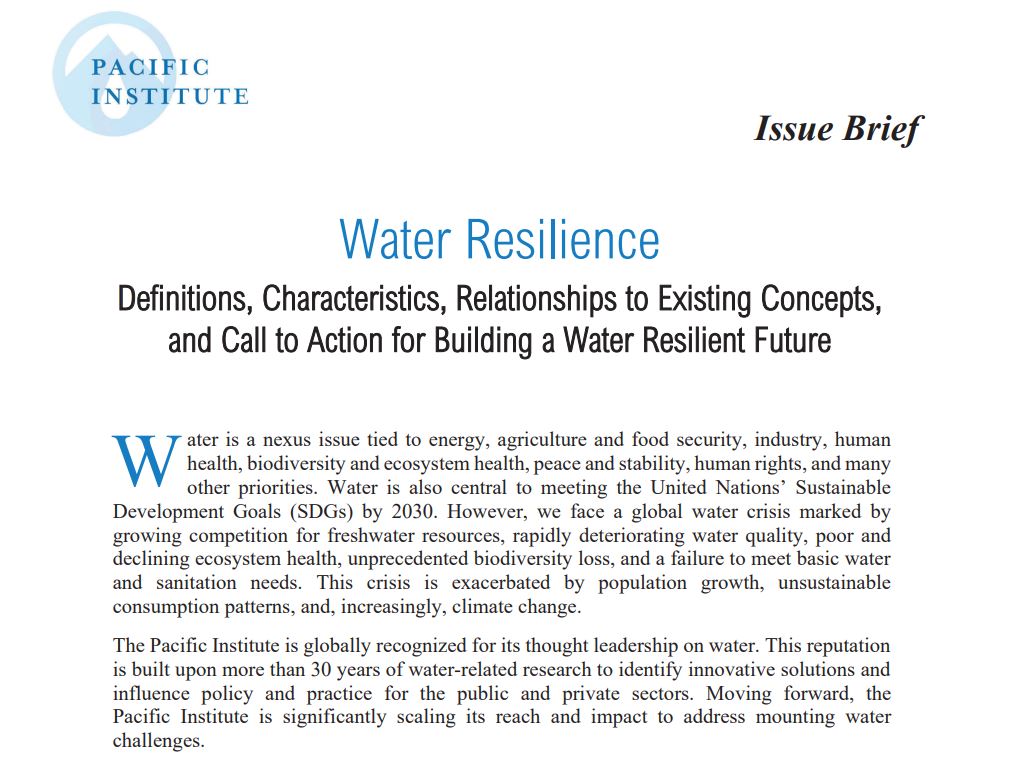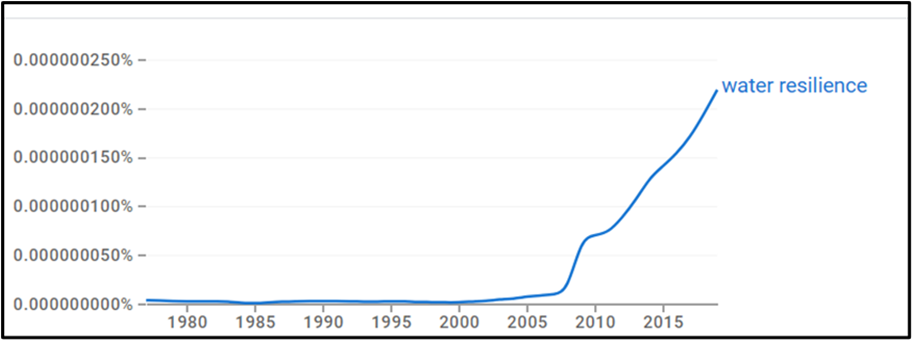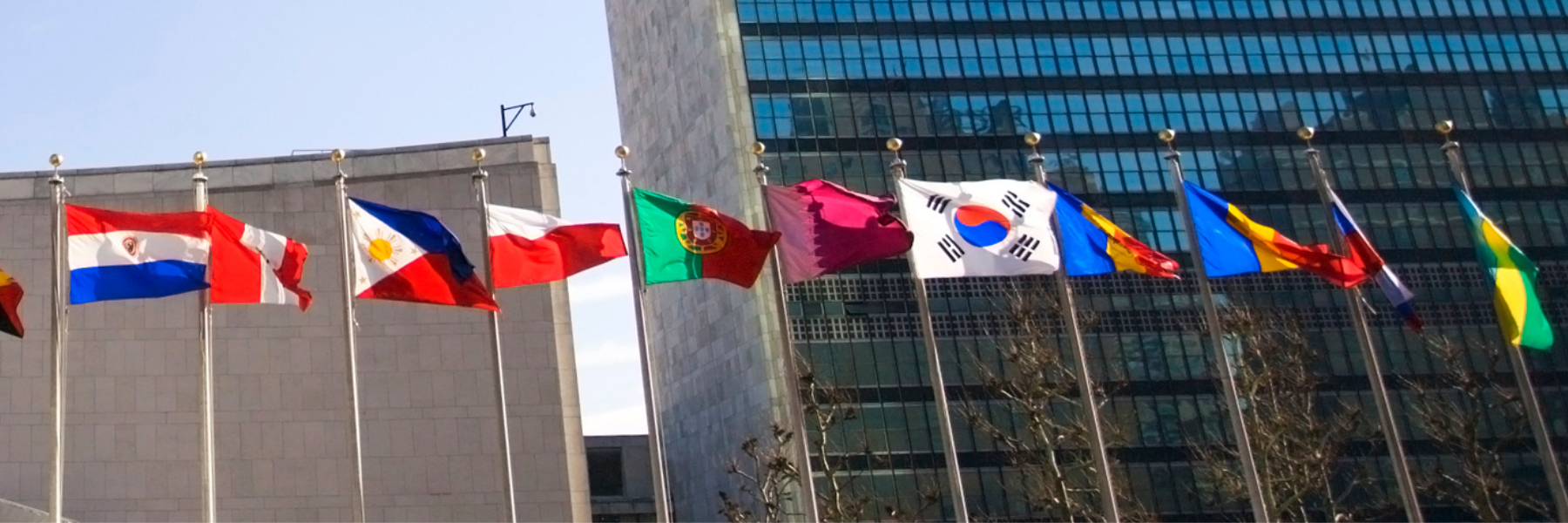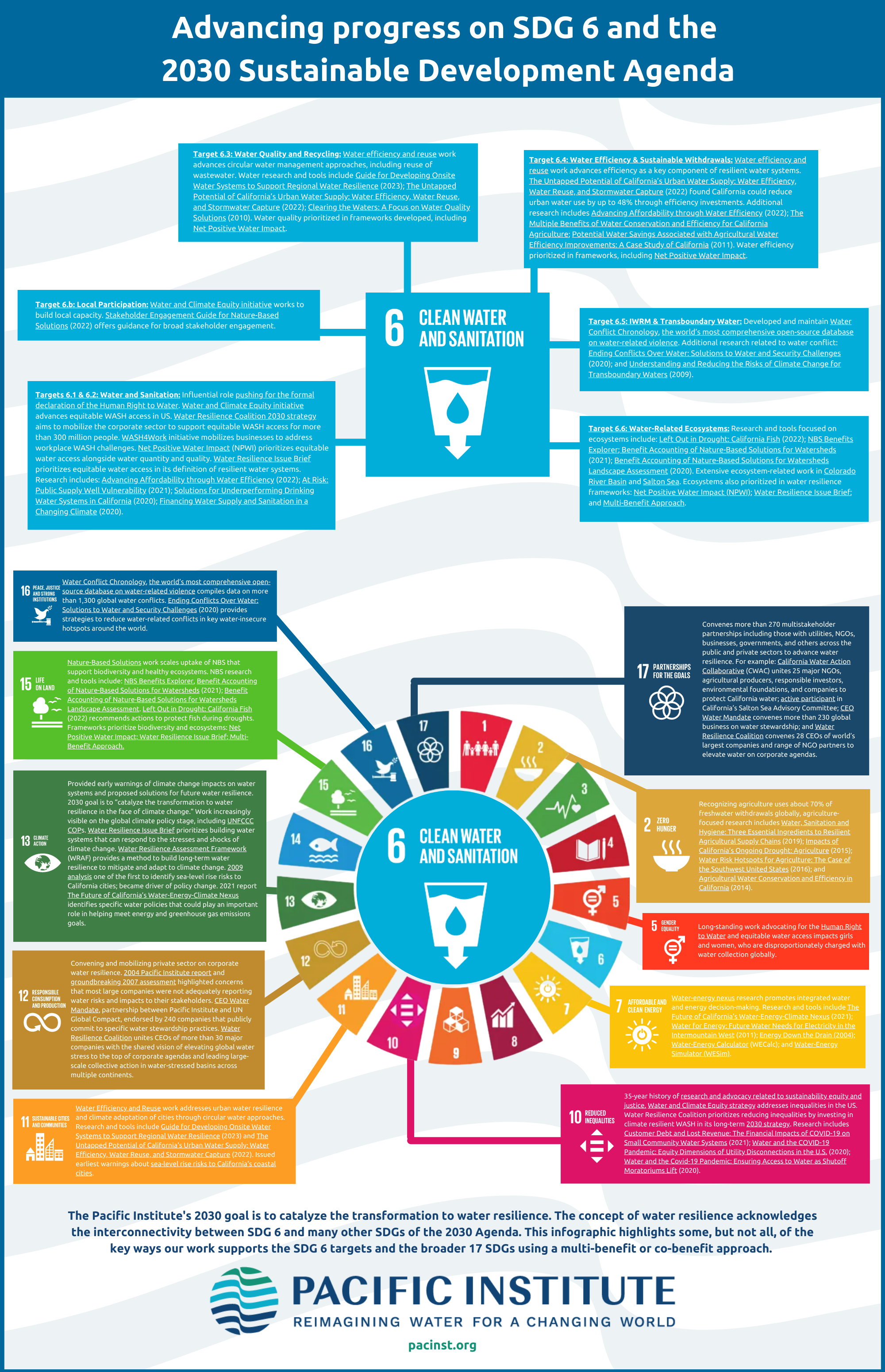Using multi-benefits approach, work advances progress on SDG 6 targets and broader SDGs of 2030 Agenda
By: Dr. Amanda Bielawski, Jason Morrison, Mai-Lan Ha, Dr. Peter Gleick, and Heather Cooley
Key Takeaways
- Part 1 in this blog series discussed the pivotal nature of the upcoming UN 2023 Water Conference 22-24 March in New York.
- In this blog, we explore how the Pacific Institute will approach the conference through the lens of building water resilience, a concept rising in visibility across the global climate and sustainability agenda and increasingly recognized in the literature.
- Water resilience acknowledges the interconnectivity between SDG 6 and many other SDGs of the 2030 Agenda related to climate change, biodiversity, energy, and other priorities.
- We visually illustrate how the Pacific Institute’s work contributes to progress on a range of SDG 6 targets and many of the broader SDGs through a co-benefit or multi-benefits approach.
As we discussed in the first blog in this series, the UN 2023 Water Conference happening 22-24 March at UN Headquarters in New York, marks a pivotal opportunity for water to advance on the global agenda.
The public and private sector issues the Pacific Institute will advance at the conference are all connected under the umbrella of water resilience. In 2019, we announced an organizational goal to catalyze the transformation to water resilience in the face of climate change by 2030. The water resilience framework emerged from the “soft path for water” concept pioneered by the Pacific Institute.
What do we mean exactly by the term? And how can it help achieve both SDG 6 targets and the broader 17 SDGs?
Water Resilience Issue Brief offers definitions and guidance

Our Water Resilience Issue Brief defines water resilience as “the ability of water systems to function so that nature and people, including those on the frontlines and disproportionately impacted, thrive under shocks, stresses, and change.” Water resilience builds upon the concepts of water security and sustainability, while recognizing that water systems must be able to respond to stresses and shocks, including those increasingly caused by climate change.
The brief provides guidance for governments, policymakers, businesses, NGOs, and other actors to rapidly scale solutions. These include integrating nature-based solutions with grey infrastructure and increasing investments in water efficiency and reuse—all through a lens of equity.
Rising in visibility
The image below illustrates how the concept of water resilience is on the rise in literature. This ngram visualizes the frequency of the term in books between the year of the last UN Water Conference (1977) and the last year of available data (2019).

Ngram for term “water resilience” 1977-2019.
Aligning our water resilience work with SDG 6 and the broader SDGs
The concept of water resilience acknowledges the interconnectivity between SDG 6 and many other SDGs of the 2030 Agenda related to climate change, biodiversity, energy, and others. Understanding water’s many quantifiable co-benefits also aligns with the Pacific Institute’s Multi-Benefit Approach to Water Management framework, which acknowledges “because water is deeply linked with economic, environmental, and community well-being, investing in water can address water challenges while providing additional ‘co-benefits.’”
The Pacific Institute’s commitment to the Water Action Agenda
We highlight here a sampling of some, but not all, of the key ways our work supports not only the SDG 6 targets, but also the broader 17 SDGs using a multi-benefit or co-benefit approach.
Visualization of some, but not all, of the ways the Pacific Institute’s work supports the achievement of the SDG 6 targets and the broader SDGs of the 2030 Agenda.
Significance of the UN Water Conference opportunity
As we discussed in Part 1 of this series, the broader 2030 Agenda’s 17 SDGs cannot be achieved without solving for water. With progress toward SDG 6’s targets “alarmingly off track,” it’s critical to rapidly speed our collective progress building resilient water systems.
The UN 2023 Water Conference may provide the momentum the world needs to do just that.
Follow us on LinkedIn and Twitter to follow along at the conference.
Learn more about and register for the Pacific Institute’s conference sessions on corporate water stewardship, water efficiency and reuse, and water conflict here.



